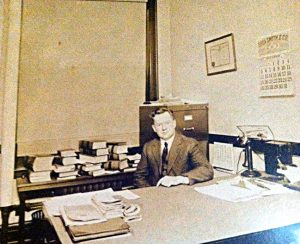Vehicular Homicide and DUI in San Diego, California
When someone is charged with Vehicular Manslaughter with Ordinary Negligence in California for a death caused during a DUI (Penal Code section 191.5(b)), where the prosecution is not alleging gross negligence, the prosecution has to prove the following things:
The accused driver drove under the influence of alcohol and/or drugs, or;
The accused driver had a blood alcohol content of 0.08% or more at the time of driving, or; The accused driver was under the age of 21 and had a blood alcohol content of 0.05% or more.
AND
While driving in such a way the accused committed either a:
A misdemeanor, or; An infraction, or;
An otherwise lawful act that might cause death.
AND
The accused driver’s negligent conduct (the misdemeanor, infraction or otherwise legal act…) caused the death of another person.
Possible Defenses
A charge of Vehicular Manslaughter with Ordinary Negligence for a death caused during a DUI can be defended in several different ways.
Not Intoxicated
If the driver was not under the influence or 0.08% more at the time of driving, then they are not guilty. It is important to note, when there is an accident, especially if someone is killed, the police very often jump to the conclusion that if someone involved has been drinking (they refer to it as HBD), that they must be at fault and that they must be over the legal limit or under the influence. While this is not wholly illogical, it is not always true and can lead to a rush to blame.
Any normal defense to a DUI is applicable in this situation.
The blood or breath test was not properly done;
The blood sample was not properly preserved;
The breath test is in accurate;
While the driver eventually got to the legal limit, at the time of driving,they were not yet at the legal limit;
The driver drank after the crash.
These and many other possibilities may show that the driver was not under the influence at the time of the crash.
Result: The driver may still be guilty of misdemeanor vehicular manslaughter (no intoxication), but, not the DUI or the felony vehicular manslaughter.
No Prohibited Act
Along with showing the driver was under the influence, the prosecution also must show they committed some prohibited act. Simply driving down the street under the influence is not enough. There also has to be either a misdemeanor, infraction or otherwise lawful act that might cause death.
Result: The driver is guilty of the DUI, but, not the vehicular manslaughter.
No Proximate Cause
Lastly, the prosecution has to show that the driver’s negligence led to the death. We all know that accidents, even fatal ones, sometimes happen. Even though police and prosecutors may be quick to jump to a conclusion, it is not always correct. For example, say a drunk driver is speeding and driving southbound on a road. The soon to be deceased is driving the opposite direction on the same road. Moments before they pass each other, a deer jumps out in front of the soon to be deceased. She swerves into the opposite lane to avoid the deer. There is a crash with the drunk driver and she dies. Given the circumstances even if the drunk driver had been sober, he could not have avoided the collision.
Result: Even though he was DUI and committing a prohibited act, the speeding, while he is still guilty of DUI, he is not guilty of the vehicular manslaughter.
We at DUI Lawyers at San Diego Defenders are sympathetic of the victims of DUI related offenses. Besides the fact that all Americans deserve the protections under the law and the United States Constitution, the prosecution or District Attorney does not have the right to abuse its discretion concerning what charges a defendant may face. Manufacturing a speeding charge to constitute the necessary infraction is something that the prosecutor may be pressured into alleging to make a vehicular manslaughter case.
MADD is an organization with good intentions, but perhaps blinded by bias as San Diego Defenders, Dan Smith and Jon Pettis wrote about in a previous blog. We have often questioned the connection of grants and funding and the unnecessary over-charging of our clients. Call us at (619) 258-8888 and we can discuss your case.




